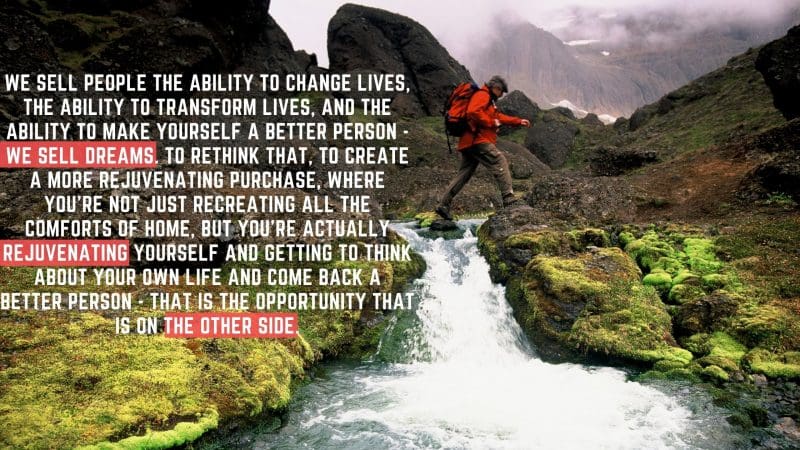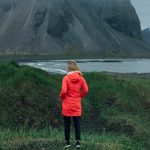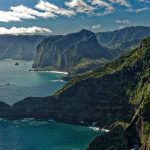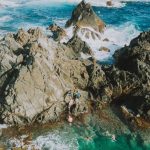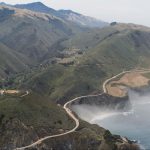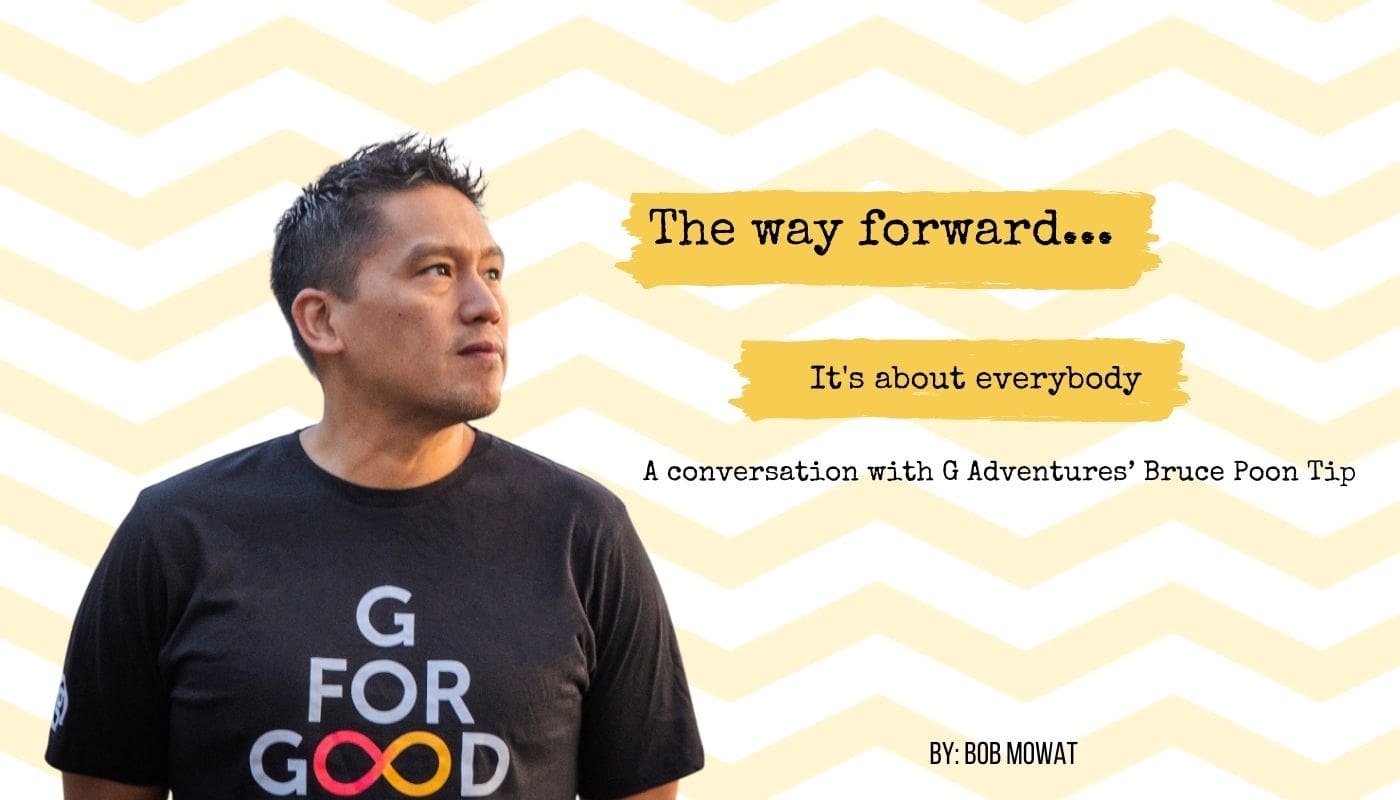
In a wide-ranging conversation with Bruce Poon Tip, the founder of G Adventures makes the point that: “Travel is a privilege, not a right. When you decide to take a holiday, and to travel, it’s a big decision that can impact a lot of lives, so I hope people change how they think about making a decision to take a holiday – and realize what a privilege it is to be able to make that choice.”
bruce poon tip
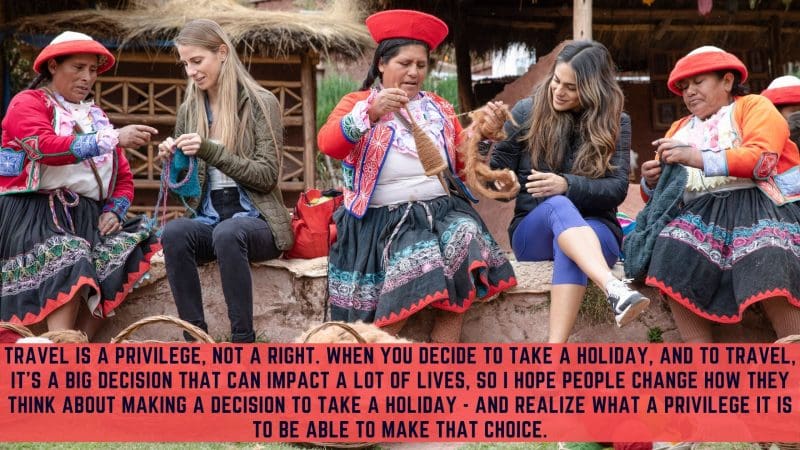
In Unlearn: The Year The Earth Stood Still, you wrote about how travel would change, but you also observed that there would be a difference between what you would like to see and what may actually be possible. So, what is it that you’d like to see… and what is it that you believe may actually be possible?
I think anything is possible. I think anything is possible for people to change how they take their holiday time. I am the eternal optimist when it comes to these things. It doesn’t need to be a lot of people, it just needs to be a small group of people to change the landscape of our industry. What I’d like to see is people becoming more connected to destinations, more purposeful in their choices and why they want to travel between countries, and not be booking based on amenities and thread counts on sheets.
That’s a dangerous place for us to be in tourism, and in travel, if people are more concerned about amenities – so it’s my hope that people get more connected and purposeful in their decision making, and understand their privilege when it comes to being able to travel. There’s a very small population on the planet that has the privilege to decide they want to take a holiday. Travel is a privilege, not a right. When you decide to take a holiday, and to travel, it’s a big decision that can impact a lot of lives, so I hope people change how they think about making a decision to take a holiday – and realize what a privilege it is to be able to make that choice.
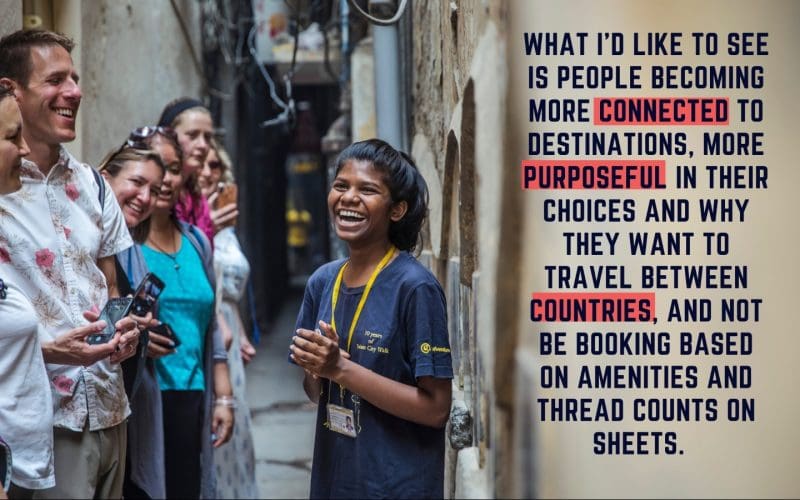
Commoditization has been an issue for the industry for some time now, but I’m wondering if we’re entering a world where travel can no longer be a product or a commodity. If you agree, what does travel need to be about?
Commoditization has dominated travel and will continue to dominate travel both on the other side of this pandemic and in the future, because there are too many companies that have invested in capacity around the world. We’ve just finished two decades of a race to build bigger ships, and to buy up coastal lands to build compound resorts. There’s too much invested in the commoditization of travel and that will continue on the other side.
What I do hope will change is the consumer. That the consumer will start to think ‘hang on, there’s a disconnect between how I live at home and how I go on holiday’ because we’re changing how we live at home, with recycling, organic diets and more sustainable practices. We have more information in our pockets than ever before, so people are realizing the impact on the planet, and not just on their own lives. There will be a tipping point where people won’t be able to suspend their beliefs when they go on holiday and be disruptive when they get there, thinking that just because they have travelled to a poor country that they can do whatever you want because it’s their right to travel.
So hopefully there’s a change in a small group of people, then those people will start telling other people, and travel becomes a movement to help the most vulnerable and in-need citizens on the planet, because we’re travelling and buying luxury holidays we’re often travelling to some of the poorest countries in the world.
Poon Tip
BSAP 2021 Interview
If you embrace it as an industry, travel can be transformative. We have people travelling to some of the poorest countries in the world spending money on luxury vacations and local communities aren’t benefiting, they’re not in the conversation. We have the opportunity to transform lives – not just create transformative experiences for travellers – but for everyone who is involved in tourism.
Bruce Poon Tip
G
A
d
v
e
n
t
u
r
e
S
There has certainly been a lot of discussions about the economic impact of travel, but I’m worried that the industry’s message of the economic importance of the industry (the number of jobs it creates, direct or indirect; it’s impact on GDP, etc.) will overshadow the social impact of travel – and some of those impacts can have a negative effect on communities if they are simply all about the economics. Is this something that concerns you?
It’s not something that I’ve thought about, only because these conversations haven’t ever been taken into consideration before. Tourism has grown regardless of social impacts previously. So, unless a conversation is being had about how we are going to change on the other side of this, I don’t think we should fool ourselves thinking that the travel industry has ever cared about this previously.
What I do care about is creating dialogue with local communities, in general, before we think about tourism in any region. Before we think about building ports or buying up coastal lands the dialogue needs to start.
That’s been lacking for decades, the travel industry deals either independently or with local government, and local people aren’t in the conversations. When that happens there will be a clear message for everybody. Now we have a chance to restart, that’s the hope, that we actually take the opportunity and not just try to fight back to get back to where we were, and that we do better.
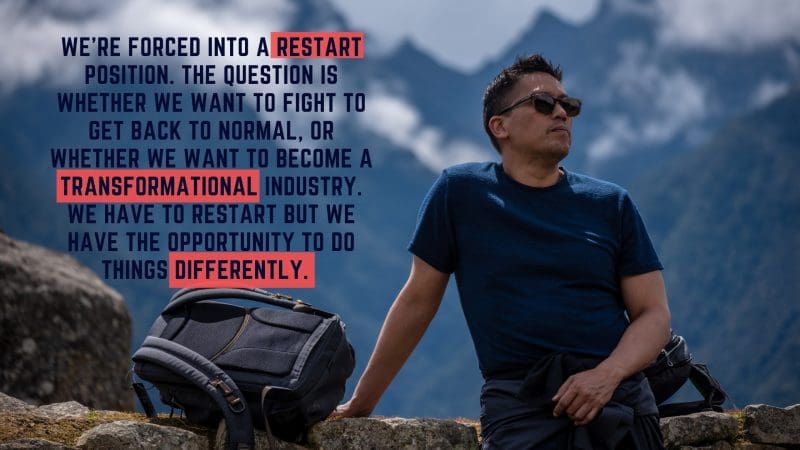
I’m wondering what kind of travel company you see G Adventures being once the pandemic is under control? And I say under control because I’m coming to the conclusion that COVID-19 may not ‘go away’ in the sense that many people are hoping it will … it’s not going to disappear … it’s going to be something we have to deal with year after year after year.
I’m a bit more optimistic than that. I think we’re going to get back to a sense of normalcy but what that looks like is undetermined right now.
At G Adventures, we stand to benefit on the other side of COVID because we’ve been doing what we do for 30 years, and we’ve been saying these same things for 30 years – it’s just starting to come to fruition now.
What I will say is we will look different because we have to follow protocols we never had to follow before. We have to look at customer safety like we’ve never had to before. We have to follow the local, national and international protocols that are in place – so it will look different for us, but I don’t know if we will be unique in that sense as we will all have to follow new guidelines in order for us to not just keep passengers safe, but to be a tour operator of the future.
We’ve always cared about the transformational aspects of travel for local communities, we’ve been standing on our soap box for 31 years and we’ll continue to do that and hopefully people will continue to travel with us, and if they can’t travel with us, they will travel like us.
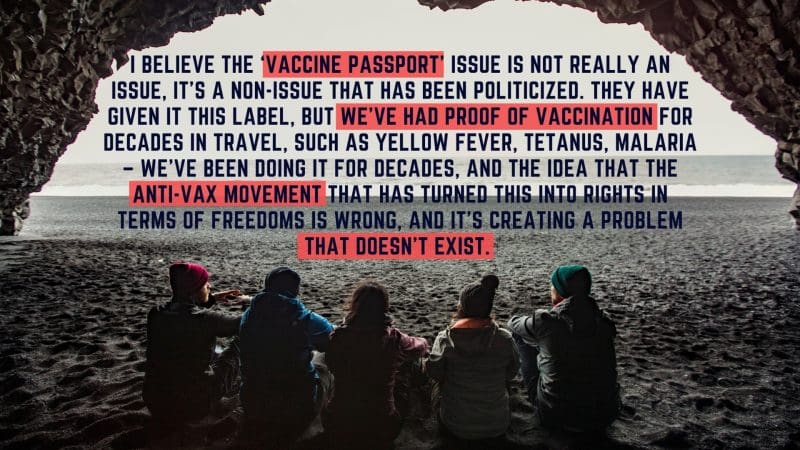
I’m wondering what kind of travel company you see G Adventures being once the pandemic is under control? And I say under control because I’m coming to the conclusion that COVID-19 may not ‘go away’ in the sense that many people are hoping it will … it’s not going to disappear … it’s going to be something we have to deal with year after year after year.
I’m a bit more optimistic than that. I think we’re going to get back to a sense of normalcy but what that looks like is undetermined right now.
At G Adventures, we stand to benefit on the other side of COVID because we’ve been doing what we do for 30 years, and we’ve been saying these same things for 30 years – it’s just starting to come to fruition now.
What I will say is we will look different because we have to follow protocols we never had to follow before. We have to look at customer safety like we’ve never had to before. We have to follow the local, national and international protocols that are in place – so it will look different for us, but I don’t know if we will be unique in that sense as we will all have to follow new guidelines in order for us to not just keep passengers safe, but to be a tour operator of the future.
We’ve always cared about the transformational aspects of travel for local communities, we’ve been standing on our soap box for 31 years and we’ll continue to do that and hopefully people will continue to travel with us, and if they can’t travel with us, they will travel like us.
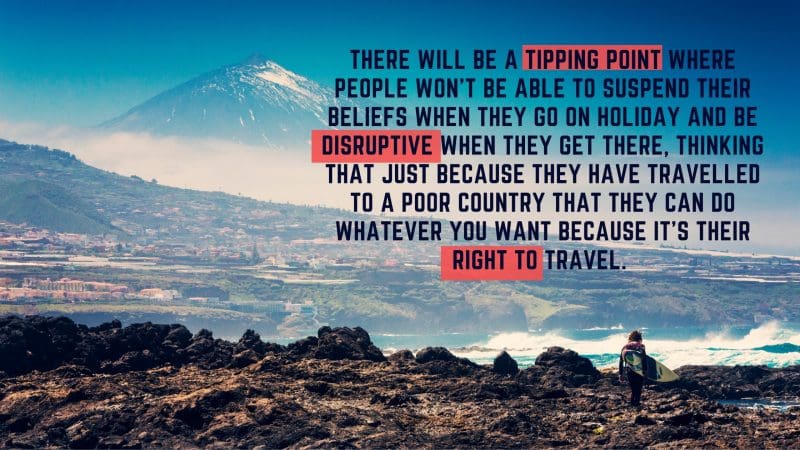
There is a discussion going on right now about vaccine passports and/or other documentation requirements that would allow people to travel. That is the positive for the industry and for those willing to travel, but it is also an approach that could potentially create a ‘have’ and a ‘have not’ situation. Are you concerned about this? And do you see other options?
No, I’m not concerned about this.
I believe the ‘vaccine passport’ issue is not really an issue, it’s a non-issue that has been politicized. They have given it this label, but we’ve had proof of vaccination for decades in travel, such as yellow fever, tetanus, malaria – we’ve been doing it for decades, and the idea that the anti-vax movement that has turned this into rights in terms of freedoms is wrong, and it’s creating a problem that doesn’t exist.
If you choose not to believe science that’s your choice, and for people that do, that’s their choice, and there are consequences on both sides for doing that.
The economy has to start back up. Everyone has to do their part when it comes to vaccinating ourselves out of this mess, and if you choose not to do your part, or if you don’t want to take part in the solution, that’s your choice, but ultimately this isn’t about individual choice or individual freedom, it’s about everybody. It’s about us coming together collectively as a globe because we need each other to get out of this.
The bigger problem I have is equity – the equity issue between countries that can and countries that can’t afford it – that’s a bigger concern – it’s a moral issue and that’s a political, governmental issue about countries supporting each other and requires a much larger conversation.
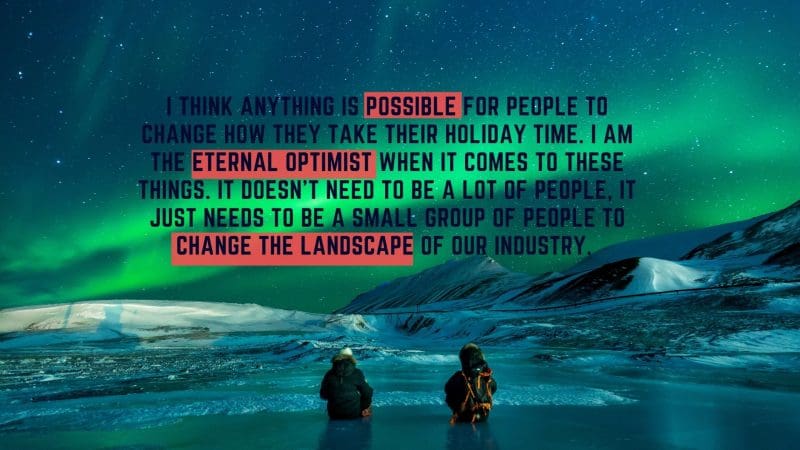
Rethink, restart and rejuvenate travel is a phrase that you used in Unlearn. Can you elaborate on what you mean by it?
Travel was in a very dangerous place before the pandemic.
We have an opportunity to rethink how we do things because we’ve been forced into this pause. Sometimes when you are doing ridiculous things you need to stop and look back to realize we were doing ridiculous things.
We’re forced into a restart position. The question is whether we want to fight to get back to normal, or whether we want to become a transformational industry. We have to restart but we have the opportunity to do things differently.
In terms of rejuvenating travel, travel is one of those things that is an emotional industry – people are making an emotional purchase and they are paying a lot of money for it. When you look at other industries, if you’re selling shoes or books, or video streaming, those are unemotional purchases. We sell people the ability to change lives, the ability to transform lives, and the ability to make yourself a better person – we sell dreams.
To rethink that, to create a more rejuvenating purchase, where you’re not just recreating all the comforts of home, but you’re actually rejuvenating yourself and getting to think about your own life and come back a better person – that is the opportunity that is on the other side.
